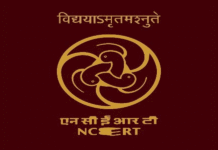Sri Vijaya Puram: Amid growing concerns over public utility reliability in the Andaman and Nicobar Islands, the Andaman Public Works Department has announced the shutdown of a major water pipeline in Sippighat for emergency shifting, triggering partial supply cuts across multiple zones fed by the Garacharma Water Treatment Plant.
The 500 mm DI gravity main running from Dhanikhari Dam to the Lamba Line Treatment Plant will be offline from 8 a.m. on June 3, 2025. Officials confirmed the action was taken to preempt possible damage due to ongoing land settlement in the Sippighat area. Restoration is expected by evening, though residents in key sectors have already reported reduced supply and pressure drops.
The shutdown follows recent damage at the same site, where heavy rainfall on May 24–25 triggered a landslide that ruptured two main pipelines feeding raw water to the Garacharma and Lamba Line plants. As first reported by The Wave Andaman on May 27 (source), the disruption forced emergency repair work and left large swathes of the North and Middle Andaman districts with limited access to potable water.
Sri Vijaya Puram, in particular, continues to face a deepening crisis. Despite ongoing monsoon showers, water distribution remains erratic due to decaying infrastructure and unresolved mechanical failures at treatment plants. On May 22, The Wave Andaman detailed how rationing had been reintroduced across affected wards, with some localities receiving water for as little as 20 minutes a day (source).
Authorities have asked residents to conserve water and brace for intermittent disruptions throughout the day. Tanker support has not yet been formally announced, though municipal officials say emergency supply requests are being assessed.
This intervention is part of a broader effort to stabilize public infrastructure in ecologically sensitive zones. But recurring shutdowns and an aging network continue to expose vulnerabilities in service continuity, raising questions about the long-term resilience of water systems serving the islands’ urban and peri-urban populations.
Today’s disruption also follows a series of infrastructure-linked anxieties, including land conversion backlogs, pipeline fragility, and high-profile political scrutiny of governance lapses. As the monsoon season intensifies, pressure is mounting on utility agencies to provide uninterrupted essentials in a region where terrain, weather, and administrative inertia often collide.
Municipal authorities have assured that the normal supply will resume once pipeline shifting is completed. No timeline was provided for follow-up repairs or broader infrastructure reinforcement.





